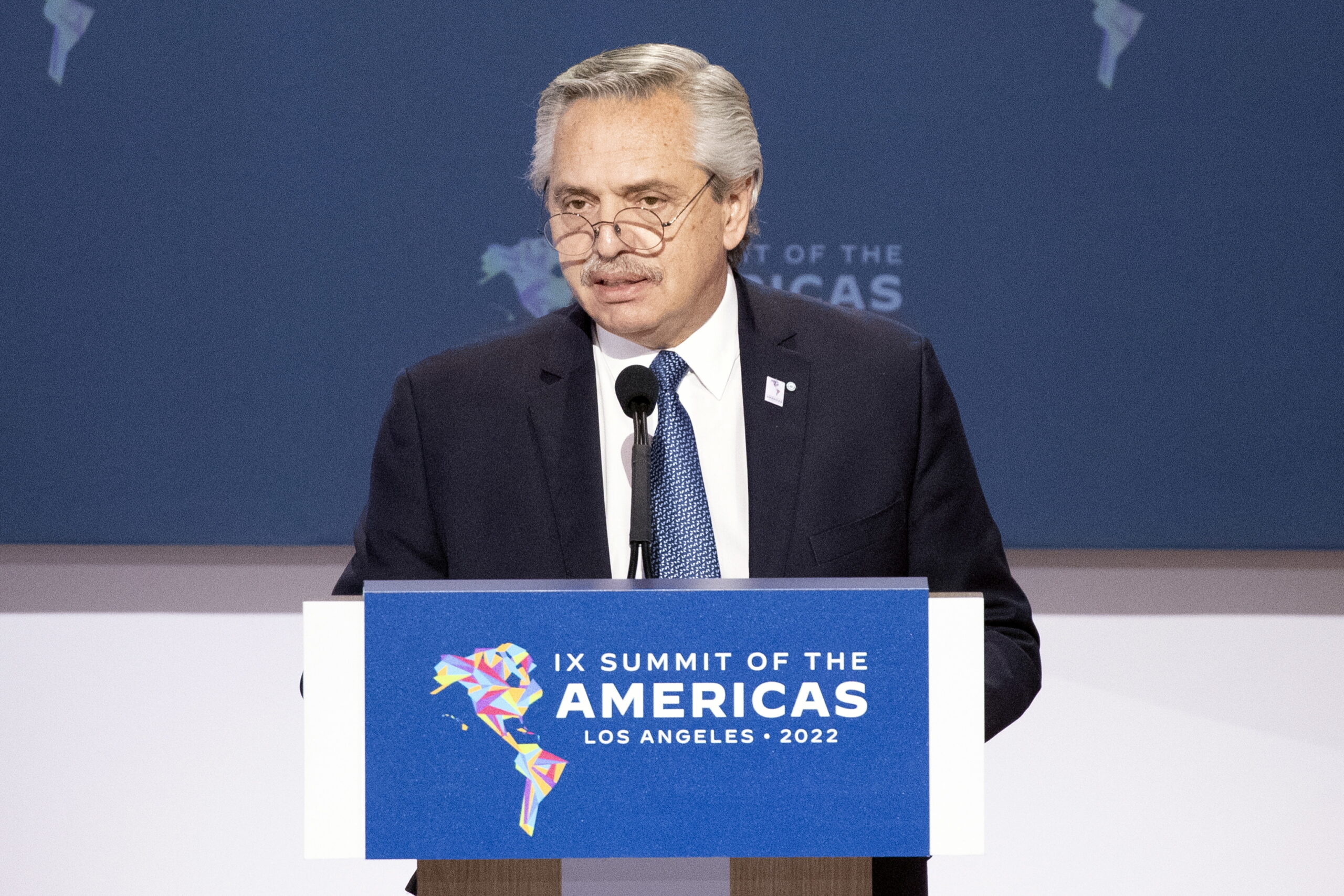“I’m sorry that not everyone who should be is here today.” The Argentine president, Alberto Fernández, has assured upon arriving at the IX Summit of the Americas that his objective is to build bridges between the opposing countries. Apparently, that part of his speech has remained in some corner of the Casa Rosada in Buenos Aires, because in Los Angeles above all he became the “voice” of Nicolás Maduro, just as the revolutionary leader had claimed in past days.
“We definitely would have wanted another summit, the silence of those absent challenges us,” the Peronist leader advanced before specifying his scolding a few meters from the host, Joe Biden: the “blockade” against Cuba and Venezuela, the “coup d’état” of the “gendarme” of the Organization of American States (OAS) against Bolivia, the imposition of a US director in the Inter-American Development Bank (IDB) and the debt with the International Monetary Fund (IMF).
No reproach for the human rights violations and the enormous democratic shortcomings in Venezuela, Cuba and Nicaragua, despite the fact that Fernández stressed that “I come from a humanist country, where we enshrine the value of human rights as the heart of our identity.”
Beyond the poetic phrases and revolutionary propaganda of his allies, Fernández has facilitated the emboldening of the three revolutions in recent days, not only with Maduro’s express trip to Algeria and Iran, where he landed this Friday, but also also with the presidential decree of Daniel Ortega that authorizes the entry of Russian soldiers to Nicaragua. Training, operations and rescues are contemplated in the agreement, which privileges Moscow over other countries that have also been authorized, such as Cuba, Venezuela or the US itself.
From the propaganda apparatus of the Kremlin this announcement has been celebrated in such a way that one of its presenters has affirmed that “it is time for Russia to deploy something powerful closer to an American city”.
The Sandinista initiative has not only been criticized by opponents and activists, Rodrigo Chaves, president of neighboring Costa Rica, who was present at the Summit, has also reacted to the Russian military presence: “We have serious concerns with Nicaragua. We have not had an army since 1949 We feel worried and rightly so.”
From Tehran, Maduro, knowing that he is under the spotlight for his previous trip to Algiers, has not missed the opportunity to strike again in defense of “the peoples” of Nicaragua, Cuba and Venezuela. “Our voice reverberates in Los Angeles to say enough is enough! The path is union and self-determination,” said the “son of Chavez.”
Fernández has taken advantage of his speech in the first plenary session to extend Biden the invitation to the Summit of the Community of Latin American and Caribbean States (CELAC), as Maduro has requested. The three revolutions and their continental allies are trying to revive the body created by Chávez and Lula da Silva a decade ago to recover old hegemonic glories and besiege the OAS.
“Fernández, like Mexican Foreign Minister Marcelo Ebrard, operated as spokespersons for the autocracies excluded from the Summit and also tried to redefine the Latin American order. Unlike Chilean President Gabriel Boric, who supported the idea of bringing the autocracies to the meeting without stop denouncing human rights violations, Fernández and Ebrard privileged a state-centric vision of sovereignty that denies popular sovereignty. In addition, they want to bring back the Latin American order to the one that existed before the Inter-American Charter,” historian Armando Chaguaceda pondered for EL MUNDO. .
“The Biden government, with mistakes, has tried to rescue multilateralism and integrate Latin America at a time of great global challenges. The position of these countries does nothing but reinforce Trumpist Latin Americanism,” Chaguaceda said. At the last Summit, held in Lima in 2018, then-President Donald Trump decided not to travel at the last minute to monitor “world events” from the White House.
Conforms to The Trust Project criteria
















